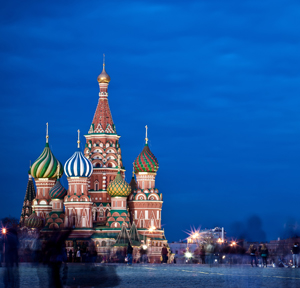Compliance
Russian Money Laundering Scandal Hits More Banks

A number of banks are named in a report about a new money laundering scandal originating from Russia.
Campaigning reporters have named more banks as being
embroiled in a massive money laundering scandal that has already
seen lenders such as Denmark’s Danske Bank staring at
potentially
large fines. In Danske’s case, international authorities have
started probes.
Claims from a journalists’ group put the finger on Austria’s
Raiffeisen
Bank International, as well as Germany's Deutsche Bank and
US-based Citigroup.
A report by Bloomberg yesterday said that the group also
referred to Dutch banks as being in the potential firing line.
This follows reports that US authorities were
looking into Deutsche Bank, for example.
The
Organized Crime and Corruption Reporting Project, a group
founded in 2006 and operated by the US-based Journalism
Development Network, has exposed what it says is a new
“Laundromat” that also draws attention to the scheme’s alleged
mastermind, Russia’s Troika Dialog.
The widening scandal in Europe has already prompted policymakers
in Brussels to call for tougher AML controls, while legislators
have also criticised “golden visa” programmes operated in some
member states as potentially aiding money laundering. (See
article here.)
The journalist group discovered the scheme because of banking
transactions and documents it obtained, as well by the work of
the Lithuanian news site 15min.lt. The group’s report on its
website said the data covers more than $470 billion across
millions of individual transactions involving 233,000
companies.
OCCRP said in a 4 March report that Citigroup declined to
comment; Raiffeisen declined to comment, citing client
confidentiality; and Deutsche Bank said it had “limited access”
to information about Troika client transactions and could not
comment on specific businesses for legal reasons.
“The main purpose of the system we’ve named the Troika Laundromat
was to channel billions of dollars out of Russia. But it was much
more than a money laundering system: The Laundromat allowed
Russian oligarchs and politicians to secretly acquire shares in
state-owned companies, to buy real estate both in Russia and
abroad, to purchase luxury yachts, to hire music superstars for
private parties, to pay medical bills, and much more,” OCCRP
said.
Shares in Raiffeisen Bank International fell sharply yesterday;
at the close of the market, they were down by 8.9 per cent.
Shares in Deutsche Bank fell by 0.85 per cent; and Citigroup’s
shares were down by 1.59 per cent early afternoon US time
yesterday.
Raiffeisen, did, however, issue a comment late yesterday on
its corporate website: “The complaint is filed against an unnamed
party, and therefore at the current time Raiffeisen Bank
International (RBI) is not familiar with the concrete allegations
and does not have any further information on the content of the
complaint. In the past, some of these allegations were already
subject to intensive investigations at RBI on the part of the
regulatory and legal authorities and confirmed to be unfounded,”
a spokesperson said.
“RBI complies with all anti-money laundering requirements. Its
compliance systems and processes have been, and continue to be,
regularly reviewed by external parties and are confirmed to be in
compliance with the legal requirements. Nevertheless RBI takes
the allegations in the media very seriously and is conducting an
internal investigation,” the spokesperson added.
What OCCRP has called the Troika Laundromat is the fourth scheme
the group has uncovered, the others being the Proxy Platform, the
Russian Laundromat, and the Azerbaijani Laundromat.
To some degree the different groups of allegations mirror the various “papers” – Panama and Paradise versions – about offshore financial accounts as revealed by the Washington DC-based International Consortium of Investigative Journalists.
Europe’s money laundering scandals have prompted calls for more European-level action to fight the problem. The issue goes much wider than the EU bloc of nations, however. The Basel Institute on Governance, a non-government organisation which issued the seventh edition of its Basel AML Index this week, said that 83 countries have a risk score above 5.0, which means that they are seen as having a significant risk of money laundering and terrorist financing. (High scores, based on a 10-point scale, indicate that a country is more vulnerable to money laundering.) More than 40 per cent of the countries have higher ratings than they did in 2017, the study found.